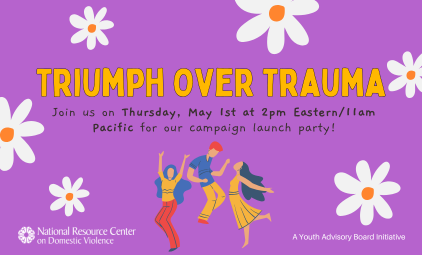The DELTA FOCUS (Domestic Violence Prevention Enhancement and Leadership Through Alliances, Focusing on Outcomes for Communities United with States) program supported domestic violence coalitions to identify, implement, and evaluate programs that are theoretically or empirically linked to reducing IPV, or decreasing risk factors or increasing protective factors for Intimate Partner Violence (IPV).
DELTA FOCUS grantees worked to prevent IPV at the national, state and local levels by implementing strategies to change the environments and conditions in which people live, work and play. To do this, grantees addressed economic and social policies, processes, and norms that shape the lives of individuals and communities. This involved implementing strategies that impact issues such as education, employment, reducing gender bias, and more.
The coalitions learned important lessons along their journey. Some lessons are specific to one type of approach while some are more broadly applicable for implementing and evaluating community-based approaches. The goal of sharing these stories is for others in the violence prevention field to benefit from this collective learning. This includes learning more about existing field-based programs and practices, discovering what worked or did not work in implementation, and considering how to approach evaluation or develop a more rigorous evaluation than was possible for the DELTA FOCUS domestic violence coalitions.
DELTA FOCUS stories each feature 1) a story summary, 2) a full printable story, 3) key lessons learned and highlighted strategies, 4) tools for adaptation, 5) highlighted projects, and 6) related resources from DELTA FOCUS grantees.
This story features lessons from five community coalitions funded by four DELTA FOCUS domestic violence coalitions. One of the community coalitions is located in Sitka, Alaska; two in Ohio: Warren County and Knox County; and one each in Los Angeles, California and Cranston, Rhode Island. Informed by healthy behavior and social norms theories, these stories suggest that prevailing attitudes, culture, and social expectations related to IPV can change through efforts to foster adult-youth mentoring opportunities, a focus on youth leadership development, and support for youth-led media and marketing campaigns. Their approaches focus on building youth’s leadership skills, engaging them in shifting norms related to violence, and strengthening community-level protective factors for Intimate Partner Violence (IPV).
| Attachment | Size |
|---|---|
| Podcast Transcript - Engaging Youth in IPV Prevention Lessons Learned from DELTA FOCUS | 100.87 KB |














